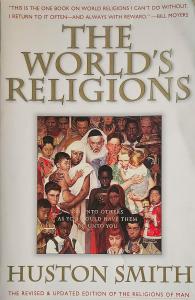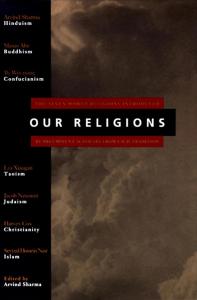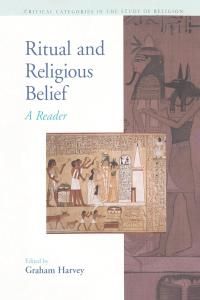Doubt: A History – Jennifer Michael Hecht
A Book and Its Author Under Critical Review
Jennifer Michael Hecht’s Doubt: A History: The Great Doubters and Their Legacy of Innovation from Socrates and Jesus to Thomas Jefferson and Emily Dickinson (HarperOne, 2004) is an ambitious, sweeping intellectual history that traces the lineage of doubt across centuries and cultures. Hecht’s book is notable for its scope, its detail, and its storytelling energy, painting a sweeping portrait of skepticism’s influence on the human mind. Here we review the book’s merits and flaws, its importance, and the author’s background.
About the Author Jennifer Michael Hecht
Jennifer Michael Hecht is an American poet, historian, and philosopher, famous for her books that combine academic insight with elegant yet approachable prose. Born in 1965, Hecht received her Ph.D. in the history of science from Columbia University. She’s written several books, including The End of the Soul and Stay: A History of Suicide and the Philosophies Against It, and her poetry collections received critical attention. Hecht’s interdisciplinary approach and her ability to synthesize complex ideas into compelling narratives are hallmarks of her writing. Her science and literary background enable her to tackle significant topics, such as doubt, with both authority and nuance.
Book Scope and Organization
Doubt: A History is a sweeping history of skepticism, from ancient Greece to today. Hecht structures the book both chronologically and thematically, traversing giants like Socrates, Jesus, Hypatia, Avicenna, Galileo, Spinoza, Voltaire, Jefferson, Dickinson, and many others. Each chapter takes us to a different time and place, highlighting how doubt expressed itself in philosophy, religion, politics, literature, and science.
This is both the book’s strength and its challenge. Leaping energetically through time and location, Hecht astutely facilitates the reader’s admiration of skeptical thought’s interconnectivity. But this lofty aim can sometimes result in a superficial coverage of complicated people or concepts, causing the reader to wish some sections of the book went deeper.
Critical Analysis: Strengths
Comprehensive Research and Intellectual Ambition
Hecht’s research is formidable. She taps a staggering collection of primary and secondary sources, interweaving philosophy, theology, history, and literature. What makes the book especially inclusive is that Hecht isn’t limiting herself to Western thinkers but also covers doubters from Buddhist, Hindu, Jewish, and Islamic traditions. This global reach spices up the story and attacks the idea that skepticism is a Western-only obsession.
Engaging Narrative and Accessibility
Though it is academically grounded, Doubt: A History is penned in a captivating, frequently humorous prose. Hecht’s narrative turns an intimidating intellectual landscape into an accessible one. Her knack for reducing intricate arguments to lucid summaries is remarkable, and her infrequent personal digressions provide a salubrious humanity.
Relevance and Contemporary Significance
Hecht makes a compelling case that doubt is not just an absence of belief but a vital engine that has spurred innovation and reform. By emphasizing the role of doubters in advances in science, politics, and ethics, she reconceptualizes skepticism as a generative, essential part of human progress. In an age of ideological conviction that frequently results in polarization, Hecht’s praise of uncertainty seems both timely and significant.
Critical Analysis: Weaknesses
Overextension and Lack of Depth
The book’s most powerful asset—its phenomenal breadth—is its most significant liability. In her rush to traverse so much territory, Hecht sometimes trades depth for width. Some chapters, notably those concerning non-Western traditions, seemed hurried or diminished. Specialist readers might consider her treatment light, but lay readers will enjoy the sweep.
Occasional Bias and Interpretation
Although Hecht aims for even-handedness in her work, her affection for skepticism sometimes causes her to paint skeptical subjects in an excessively flattering light. For instance, certain historical skeptics are portrayed as more extreme or impactful than they actually were. Moreover, her readings of religious characters, like Jesus, through the prism of skepticism, can come off as strained or provocative, according to the reader.
Organization and Readability
The book’s organization, though for the most part logical, can be overwhelming. The dense march of names, dates, and ideologies might confuse some readers, particularly in the book’s later chapters. Although it reads like a thriller, the overwhelming amount of material can make the book taxing.
Legacy and Impact
Doubt: A History has become a touchstone for readers fascinated by the history of skepticism, atheism, and secular thought. Hecht’s work has expanded the appreciation for the role of questioning in intellectual and cultural life. The book inspired debates in intellectual, literary, and philosophical circles and continues to resonate for anyone interested in the origins and impact of skepticism in culture.
Conclusion
Jennifer Michael Hecht’s Doubt: A History is a witty, intellectually ambitious, and engaging read — an expansive history of the development and power of skepticism. What makes it great is the combination of deep research, clear writing, and a relevant message about the importance of being a skeptic. But its breadth occasionally comes at the expense of depth, and Hecht’s interpretive decisions won’t please everyone. Yet the book remains a significant addition to intellectual history and a tribute to the ‘loose screws’ who have made our world. Hecht herself, with her interdisciplinary background and literary flair, is ideally suited to narrate this heritage, rendering the book a captivating read for anyone fascinated by the might and history of skepticism.






